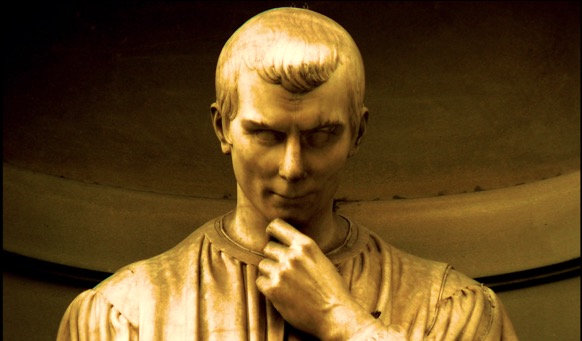The crisis of modern liberalism and science requires skeptical political philosophy—but skeptical political philosophy is itself undergoing a crisis.
Which Way, Jester Man?

In a collapsing age, humor and spirit alone won’t do us justice.
I appreciate Bronze Age Pervert’s (BAP’s) measured response to what I tried to make a measured review of his most unusual book. Yet most of what he now writes pertains less to my review than to the underlying phenomenon my review attempted to bring to light for a—let us say—older, more mainstream or establishment audience. Since BAP is a far greater authority on—indeed, participant in—that phenomenon than am I, I urge those readers who wish to deepen their understanding of it to pay careful attention to his reply.
I shall instead focus my response on two main areas: first, to clarify a few misapprehensions or misunderstandings about my review of BAP’s book; second, to draw out and elucidate our areas of continued disagreement.
First, I did not say, nor did I mean to imply, that BAP himself “is the engine of the online disturbances that have been loosely called the ‘alt-right’ since 2015.” I rather chose Bronze Age Mindset—or it chose me—as representative of a phenomenon of which I am dimly aware but readily admit I do not entirely understand. BAP seems to me right on the money when he refers to the “high barriers of entry to outsiders” of online “alt-right” discourse (more on this phrase in a moment). I confess myself too old, too hidebound, too uninterested to navigate that hall of mirrors. Or, not entirely uninterested, but aware that any attempt by me to understand what BAP calls this “highly individual form of visual communication in images and memes that evolve upon each other” would be fruitless, like a World War One vet trying to “grok” the Pranksters in 1966 San Francisco.
Bronze Age Mindset was therefore a godsend. It’s a “one stop shop” in that, rather than forcing me to traverse the Internet night and day in search of I-know-not-what, here was an actual book that develops a theme and makes an argument. It moreover draws on philosophic ideas familiar from my own education.
However useful Bronze Age Mindset was to me as a gateway into this forbidding world, I also believe—perhaps owing to my biases—that if this phenomenon or youth rebellion (or whatever you want to call it) is going to stick around for a while and gain traction, it will need more than memes. It will need books. Bronze Age Mindset may therefore one day be recognized as politically and historically significant. Only time will tell on that point, but I do expect that the memes—like all slang and other such youthful enthusiasm—will fade and be forgotten, replaced by a new lingo that will in turn fade and be forgotten.
As for the pesky phrase “alt-right,” careful readers—of which I am confident BAP is one—will note that I did not in my review attach that label to him or to his ideas. BAP himself disclaims the term, and I for one am happy to allow him to self-identify (ideologically) however he wishes.
But it must be said that, whatever the “alt-right” is, there are points of contact between it and BAP’s thought—above all, their joint insistence on the falsehood of the idea of human equality as explicated and put into practice by the American founders. BAP’s own ambivalence about the term can perhaps be seen most starkly from this bald contradiction: “The ‘alt-right’ doesn’t exist and has nothing to do with the media representations of it.” Which is it? Nonexistence or misrepresentation? Or is the former a function of the latter, or vice versa?
BAP accuses me of holding out his book as an exemplar of a familiar boogeyman for the conventional right, namely, “German nihilism.” I did not in fact say that, though I suppose it is not hard to surmise this conclusion from what I did say. BAP accurately summarizes Allan Bloom on this point, but not my current way of thinking. BAP makes a stronger case against Bloom in his book, one he doesn’t repeat here, namely that Bloom stirred up an emergent “intellectual right” against the specter of “relativism.” I confess that I fell hard for this argument on first reading The Closing of the American Mind (on its publication in October 1987, age 17 and a freshman in college) and stuck to it for many years. But I long ago realized—as BAP points out in BAM—that relativism is a ghost, a chimera, not a thing. Or if it is a thing, it is not one to be feared because it has no traction—certainly not with the modern woke left, which is driven by an intense hatred, founded on an intense “certainty” of a quasi-religious yet militantly secular nature.
In any event, my beef is less with “German nihilism” than with nihilism simply. BAP is, I am confident, a more profound and experienced reader of Nietzsche than I am but I believe I know the latter’s works well enough to draw two conclusions. First, his analysis of the degradation of late modernity is generally on target; second, his specific platform or program or solution is not entirely original but draws heavily from ancient antecedents (it suffices to mention Thrasymachus, Callicles and the Athenian ambassadors to Melos) and therefore shares the same flaws or gaps. These are the very flaws or gaps that I tried to draw out in my review of BAM.
BAP also says that I failed to draw sufficient attention to his book’s wide range; I thought I had, but no matter. He suggests that I don’t “get the joke,” that I willfully or mistakenly take seriously what is meant playfully. Once again, I thought I had emphasized the book’s humor, even at one point using the word “hilarious”; but, also once again, no matter.
But I don’t think BAP can entirely get away with waving off the whole thing, as funny as it is, as a joke.
Be Careful
There is a core of seriousness to Bronze Age Mindset which I am sure the author intended and which will be found by those who look for it. What will they make of what they find? This is the question that presently concerns me. The other important questions—What does BAP actually believe, and what is the real truth, or as close as we can discern it?—are important but can remain topics for another day, should BAP choose to keep the dialogue going.
In both his book and response, BAP appears to predict a looming end to what he calls the “New World Order” (borrowing, presumably, from George H. W. Bush). Certainly, it has to end sometime, and given its brittleness, stridency, irrationality, consuming hatreds, and antipathy to nature and natural limits, it is not unreasonable to suppose that it may end sooner rather than later. What then?
In the very last chapter of Bronze Age Mindset, BAP predicts (or should that be “calls for”?) the establishment of “fortresses on the edge of the civilized world” by “superior specimens” who will “wage war” and “offer the nations of the world defense in exchange for a price.” BAP refers to this as “high piracy” without specifying what distinguishes this particular form of piracy from the low kind.
I am pretty sure BAP is not being strictly literal here, and I must admit that the whole seventy-seventh chapter constitutes a whiz-bang ending. In his reply to me, BAP notes—in order to endorse—my comparison of his rhetoric to Machiavelli’s and Nietzsche’s. But that comparison, in addition to explaining (and to some degree excusing) rhetorical excess, also cuts another way. What of those readers who don’t “get the joke”? How might they interpret these, and other, BAPian declamations? Or more to the point, what might they do?
At a prosaic level, I suppose I have in mind the following. I wonder if BAP has read, or seen the film version of, The Prime of Miss Jean Brodie. In it, an inspiring, vaguely Nietzschean (and not so vaguely fascist) teacher casts a spell over a number of impressionable girls. One of them takes quite literally Miss Brodie’s exhortation to fight in the Spanish Civil War, runs off to Spain, and is killed.
What would BAP say (or think, or feel) if a reader not-so-finely-tuned to irony took up his exhortation to live like Bob Denard? Denard (I had to look him up) was a 20th century French mercenary who—apparently with the backing of the French deep state—fomented coups and other forms of violent instability in former French colonies in order to maintain French influence. BAP holds out Denard as the “Bronze Age Mindset” personified in recent times. Yet how practicable is the life of Denard for a young man disillusioned and disgusted by bugrule? What might happen were he to try? Especially considering such that a young man today will almost surely not have a deep state—French, American or otherwise—to backstop him. (This is before we even get to the question of the justice of such a life, about which more below.)
Now, one may dismiss all this as the paranoid speculation of an old fuddy-duddy. And I freely admit that the odds are low. I also admit upfront to having argued that Machiavelli’s rhetorical excesses may, from a certain angle, appear to have been justified or at least excused by circumstance. Yet to remain open to that possibility is not to deny the actual force of actual words. I sometimes have to remind students enthralled by Machiavelli’s incisive pithiness that the master does, for instance, recommend killing babies (Prince 3). He may have meant that as a joke, or as rhetorical “brutalization” to “free from effeminacy” those “much too confident of human goodness.” But still he said it, and if he escaped this-world accountability via death, on some level the infamy of the statement must attach to his reputation, to his nome. Or, as Leo Strauss put it in a similar context,
In a sense, all political use of Nietzsche is a perversion of his teaching. Nevertheless, what he said was read by political men and inspired them. He is as little responsible for fascism as Rousseau is responsible for Jacobinism. This means, however, that he is as much responsible for fascism as Rousseau was for Jacobinism.
BAP recommends nothing so outrageous as infanticide. Yet it is not unreasonable to wonder what his musings might inspire in others. BAP justifies his rhetoric on the ground that he is an anti-regime dissident and as such must attack the—very powerful, “smothering”—existing order with whatever weapons are at hand, and not directly, not on its own turf. Just as it would be folly for lightly-armed insurgents to charge a fortress, so BAP insists it is suicide for memer-dissidents to go tête-à-tête with the political-intellectual-academic-cultural-media establishment. Understood in this way, the recommendation to piracy must not be taken literally, much less acted on in the here-and-now, nor seen as practical or practicable for whatever comes later. It is rather “exhortation” for mustering the spirit, if not the tactics, necessary for resisting the Leviathan. And I would have to agree, this is the best—perhaps only—justification for such rhetoric.
Yet even if that’s true, does it not still carry dangers? To return to an earlier thread in the argument, suppose BAP is right that the collapse of the Leviathan is imminent. What might follow?
Pirates and Peloponnesians
Speculation along such lines can lead in a million directions. For the sake of clarity, let us focus on just one. Suppose that after the bang, a small or medium-sized community finds itself cut off from political institutions, supply chains, transportation systems, power grids, information networks and so on. Yet this community is more or less “self-contained,” capable of feeding itself and possessing decent infrastructure and the expertise to get and keep it running. These people’s first priority will of course be to see to the necessities of life. Suppose further that once they’re confident that they’re going to live, it eventually dawns on them that, politically, they’re on their own.
How will they organize? According to what principle—or lack thereof? “Piracy” will not offer a reliable guide. Without going into the whole megillah, which would require a treatise—such treatises have already been written and I am confident BAP has read them—we may observe the following.
Piracy, as I noted in my review, is a form of theft. No doubt it requires great physical strength, courage, and daring; no doubt the pirate possesses vastly more thymos and virtú than a hundred bugmen put together. So did Bob Denard, who, strictly speaking, was not a pirate. Yet did any of his adventures accomplish anything? Were they just?
BAP hurls amusing insults at some of history’s most revered, or at least famous, writers and thinkers. But even he calls Thucydides “a great man and a genius for the ages.” Zeus knows, I agree. Thus, I wonder whether BAP would dispute the following interpretation of the “great man’s” work.
Thucydides seems to indicate that a core reason for Athens’ defeat in the Peloponnesian War was not merely its nakedly unbridled imperialism but also the effect that imperialism had on domestic politics and, as it were, on the soul of the city. Imperialism is another form of theft—combined, we may say, with oppression. Very few men—and even fewer peoples—can long tolerate a self-understanding as the “bad guys.” The Athenian elites’ open advocacy of selfishness eroded morale at home and cut off the Athenian people’s recourse to even the pretense that they were fighting in a just cause. Perhaps worse, the Athenian “case” for imperialism rested on the supposition that Athens, being somehow superior to other cities, somehow deserved “more” than other cities. This “more,” in the non-capitalist economy of the ancient world, could only come at the expense of said other cities. But the liberation of acquisitiveness turns out to be hard to contain to the external or international sphere. Since I can’t do better than Strauss on this point, I will just quote him:
It is in the long run impossible to encourage the city’s desire for “having more” at the expense of other cities without encouraging the desire of the individual for “having more” at the expense of his fellow citizens.
Xenophon, another author for whom BAP professes admiration, teaches much the same point. His “Cyrus” transforms the republican “Persia” (really an imaginary improved Sparta) into a vast, and apparently successful, empire. In pre-expansion Persia, the commoners and the peers live together in largely the same physical space, but in most other respects dramatically apart. The commoners resent the fact that they have so little and envy the peers, while the peers perennially fear rebellion but also realize on some level that their treatment of the commoners is unjust. Cyrus needs the commoners in order to carry out his enterprise of mass conquest; there aren’t nearly enough peers to pull it off. But to get both sides to work together, first he needs to convince the peers that it will be safe to arm the commoners and that the peers will somehow benefit from taking the risk. Then he needs to convince the commoners that, despite how things may have looked for centuries, the peers don’t really have anything against the commoners and haven’t been trying to keep them down but rather the commoners have been victims of hitherto unalterably bad circumstances. Then Cyrus proposes a remedy which will benefit all: the two parts of the city will team up, pool their efforts and energies, and wring the good life out of the fruits and labors of others. Which is to say, together they will do to foreigners on a large scale what the peers had essentially been doing to the commoners on a smaller scale.
But it doesn’t work. Or rather, it works until it doesn’t. The whole arrangement is inherently unstable and depends, in the final analysis, on the force, personality and will of Cyrus. E.g., it’s just a superior form—a well-managed example—of tyranny. But it falls apart when Cyrus dies and the corrupt elite starts fighting over spoils. At the end of the day, there is no honor among thieves, not even in mob movies.
Getting back to our post-apocalypse homesteaders, all rule—or at the very least all stable, just rule—is based on some claim of legitimacy. Even tyrants try to feign legitimacy—something, it’s worth noting, that another Xenophontic character, Simonides, explicitly recommends to the tyrant Hiero. But feigning is clearly second-best, a stop-gap. Much better to have the real thing.
BAP indicates doubt about the existence of Aristotle, but even if the latter were entirely made up, it would still be reasonable to evaluate “his” arguments on their own terms. “Aristotle” teaches that legitimacy arises from two principles or factors: justice and longevity. The two are self-reinforcing in an almost circular fashion: ruling justly contributes to and bolsters legitimacy, which in turn bolsters longevity, while long-standing legitimate rulers are more likely to view the ruled as “theirs,” as people whom they hold in affection and wish to see helped, not harmed or exploited, and so are more likely to rule justly, which further bolsters longevity. But reach far enough back and legitimacy must have a beginning. At his most BAPian, Aristotle says that legitimacy can arise from voluntary submission to a superior man in a time of crisis; this, he indicates, is the origin of monarchy. But monarchy—especially hereditary as opposed to elective monarchy—inevitably degrades. For monarchy to remain both legitimate and longevous, it requires additional support. The initial grant of legitimacy to a heroic founder is a thus a source of capital that does not earn sufficient interest to sustain itself; unless replenished, it will inevitably be spent down.
The best case I can make for what I take to be BAPian political principles is that, in time of chaos, transition and danger, this source of legitimacy may again become necessary, useful, and even just. (Machiavelli says that no republic is ever founded as such but originates from the actions of “one alone.”) But BAP has neither solved nor even addressed the question of how this “heroic monarchy” may last—how it may self-perpetuate. Aristotle says that over time, the best way is to “mix” in other elements, other claims to rule—including the popular. This is more or less what the American founders tried to do, yet BAP explicitly dismisses that description of their intent. In any case, such a solution requires—looming above—a standard or frame of reference, which Aristotle no less than the American founders did not hesitate to call “justice.”
Thus even if our homesteaders begin their new existence under the umbrella of “one alone,” they can’t long justly remain there, nor do I see how they could come up with anything like a lasting just or legitimate basis for rule based on anything found in Bronze Age Mindset. No, worse: I fear that some will take from the book precisely the wrong lesson, that strength and daring are natural and/or just titles to rule, rather than qualities which are necessary to just rule but also easily abused and therefore requiring supervision by higher, soberer principles.
BAP attempts to wave off this objection by repeating that his book is not philosophy and adding that it “isn’t intended to provide a complete elaboration of this alternative or a philosophical treatise regarding the best form of government.” I of course never said it was or even should be, nor did I “demand that [BAP] engage in a debate about the rightness or wrongness of the ideas behind the American Founding.” But I did endeavor to subject BAP’s “every word to the assumption that he means it.” I expect and assume others will too.
What will they find? Far be it from me to review a book not written or to tell anyone else what to write. But it is, or ought to be, fair game to analyze what is plainly on the page. And what’s there is a negative or critical analysis of both the classical and the American accounts of justice and legitimacy, the complete absence of any “constructive criticism,” at least in the regime sense, combined with a prediction that the end is nigh. This more than suggests, or will likely suggest to certain readers, that if the cleansing fire doesn’t spark on its own, human agency may be justified to get it going, and that when the embers cool and it’s time to start over, the “mistakes” of the past will have to be avoided. It seems, from reading BAM in isolation, that readers will inevitably conclude that those “mistakes” include supposing that considerations such as “justice,” “equality” and concern for the status of the common man don’t inevitably lead straight back to bugrule.
What Is Highest?
If BAP were serious about “superior specimens” establishing “fortresses on the edge of the world” then we might say that he dispenses with the problem of the common people by dispensing with the common people. But only, of course, from said “fortresses,” from which they will presumably be deliberately excluded. Then who will do the work? I suppose, being pirates, the “superior specimens” will simply steal their sustenance.
But we’ve already established—and BAP has more or less admitted—that none of that is meant seriously. He presumably then realizes that as a practical matter, the natural aristoi and the common people are going to have to find a way to live together. That way—if it is to be, at the very least, stable, to say nothing of just—will have to give to the common people some measure of their due, or what they think is their due.
Or put this another way. Surely not all of BAP’s readers are natural aristoi, whatever they may imagine or wish themselves to be. Surely a great many of the disaffected youth to whom BAP appeals are “ordinary” or more or less “average”—and not, therefore, any less justified in resenting the order and its elites who despise them. Indeed, as I said in my review, BAP’s surface immoderation hides, at points, a moderate depth in that, however reckless his “political” speculations sometimes appear, his specific recommendations to his young readers are anything but dangerous and are even constructive. But even if every single BAP-fan were to cut out bad habits, take up lifting, and steel his spirit for the coming trials, the majority would still be “ordinary” for the simple reason that only in Lake Wobegon are all the children above average. What will be their place be in the BAPian future?
Xenophon and Machiavelli—however unsatisfying their answers to this question—at least have answers. Both are much more friendly to the common people than is Nietzsche or BAP, who salts his work with rhetoric more than merely dismissive but at times almost brutally contemptuous of ordinary folk.
Yet BAP is surely right that the bulldozer “equality” of the modern woke-left is destructive of all higher life and of human virtue simply. This is why, to return to a topic raised by BAP and touched on above, I don’t believe BAP is a “nihilist,” German or otherwise. He simply cares too much. Say what you will about beauty, strength, and daring, to hold these up as standards is to have standards, to look up at something higher—a stance not usually associated with nihilism. Perhaps understood this way, even Nietzsche was not a nihilist, though he was surely not—as BAP is not—a believer in the founders’ equality or even in classic natural right. That both partisans and opponents of these older understandings can share dissatisfaction with the present malignancy, and for much the same reasons, is evident enough. We may even share a general sense of what to do and how to do it—at least for now. Machiavelli describes the mission thusly:
I do not know if I deserve to be numbered among those who deceive themselves, if in these discourses of mine I praise too much of the times of the ancient Romans and blame ours. And truly, if the virtue that then used to reign and the vice that now reigns were not clearer than the sun, I would go on speaking with more restraint, fearing falling into this deception of which I accuse some. But since the thing is so manifest that everyone sees it, I will be spirited in saying manifestly that which I may understand of the former and of the latter times, so that the spirits of youth who may read these writings of mine can flee the latter and prepare themselves to imitate the former at whatever time fortune may give them opportunity for it. For it is the duty of a good man to teach others the good that you could not work because of the malignity of the times and of fortune, so that when many are capable of it, someone of them more loved by heaven may be able to work it.
But at some point, our remaining—and serious—disagreements will force us to square off: the content of what is taught will take on supreme importance. What is the highest standard? Is there something above beauty, strength and daring? If there is, is that something consistent with equality understood as a limiting principle to prevent or discourage strength and daring from abusing the common man? BAP’s answer would seem to be “No,” in which case he has a political teaching, whether he wishes to acknowledge as much or not. For to say “This is false, doesn’t work, never has and never will” is to say “Dispense with it; despise it; don’t ever try it or anything like it again.”
And in that case, all the theoretical and practical problems raised in my review remain. To restate them as succinctly as I can: there is in the human species an abundance of inequality by degree but none by “kind,” in the sense of entitling any “superior specimens” to rule the “lower” by right, and certainly not in ways the latter will readily accept. Attempts to find the “line” that clearly and cleanly separates “superior” from “inferior” fail in both theory and practice. At least that’s how it looks to me, from a continuous reading of ancient things and long experience with modern.
I raised all of this, and more, and BAP didn’t respond to any of it—neither to affirm nor to dispute. When a presumably intelligent man and careful reader remains silent on a point or points marshaled in direct response to his writings, that silence can be interpreted in one of two ways: either as a tacit indication that he considers the topic(s) being ignored as unimportant, even false, or as a tacit admission that he agrees with those points he declines to challenge. Somehow, in this case, I don’t think the latter is the explanation.
I’m still willing—eager—to have that discussion. I find it not merely interesting as a theoretical matter but vital as practical one. If BAP is right that the Leviathan will soon fall, then we had best get ready now thinking through what to replace it with.
The American Mind presents a range of perspectives. Views are writers’ own and do not necessarily represent those of The Claremont Institute.
The American Mind is a publication of the Claremont Institute, a non-profit 501(c)(3) organization, dedicated to restoring the principles of the American Founding to their rightful, preeminent authority in our national life. Interested in supporting our work? Gifts to the Claremont Institute are tax-deductible.
There is nothing manly in throwing up your hands.
Democracy and despotism in a digital age.
Does politics have an answer to digital disenchantment?
America’s ideals are worth defending against two-bit impostors.






